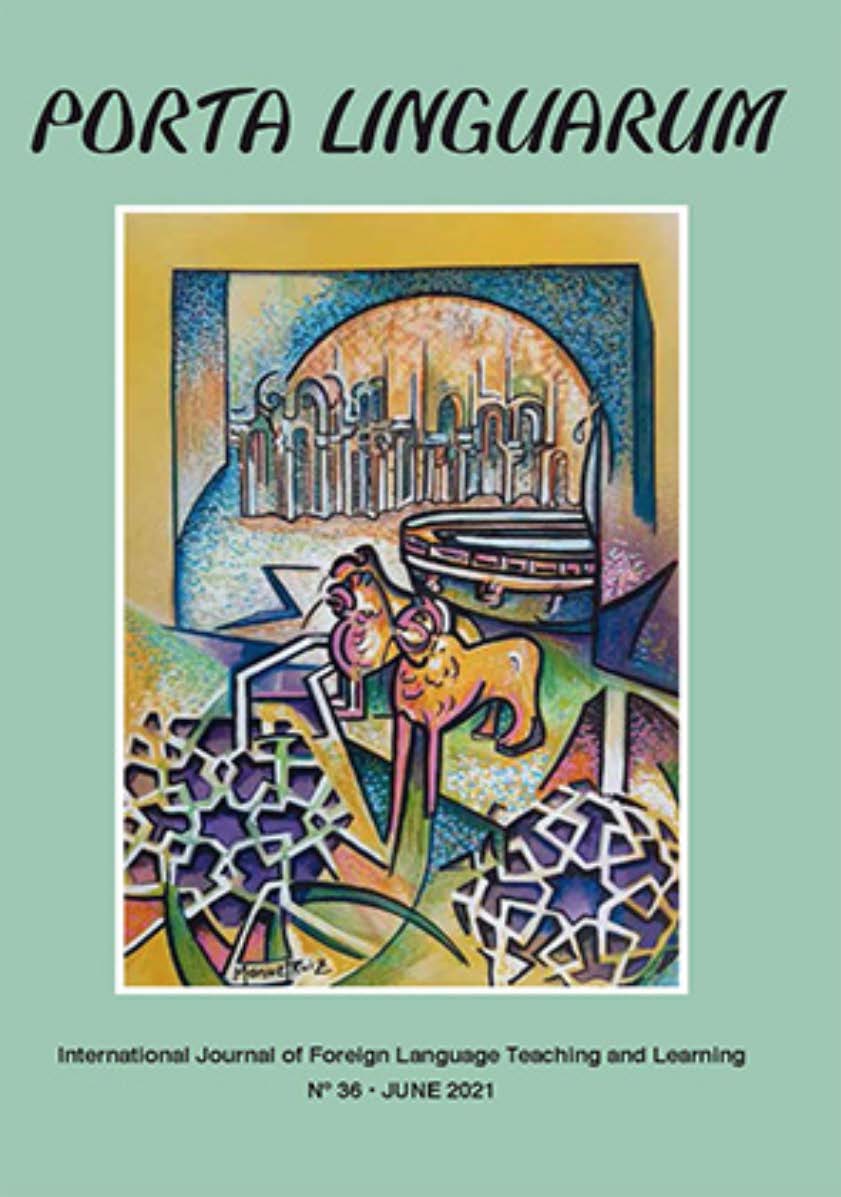Impact of Motivational Languaging Activities on Novice English Teachers’ Motivation: An Activity Theory Perspective
DOI:
https://doi.org/10.30827/portalin.vi36.15909Keywords:
English Teacher, Teacher Motivation, Activity Theory, Languaging, Motivational Languaging ActivityAbstract
The study aims to explore the influence of languaging on novice English teachers’ motivation and to investigate the uniqueness of each English teacher’s reactions to motivational languaging activities (MLAs) from an Activity Theory (AT) perspective. Three novice English teachers at secondary schools in South Korea were interviewed using questions based on an AT framework, and they completed six sets of MLAs consisting of two parts: motivation and languaging. Our findings indicated that the two relatively motivated teachers could use MLAs to develop their ideal teacher identity and improve their teaching confidence. By participating in MLAs, a demotivated teacher can reshape her thoughts regarding teaching and motivate herself again. It has also been shown that MLAs can mediate participation in an imaginary teacher community, possibly leading to enhancement of L2 teacher motivation, but that this also might not occur depending on one’s teacher agency.
Downloads
References
Aydin, S. (2012). Factors causing demotivation in EFL teaching process: A case study. The Qualitative Report, 17(51), 1–13.
Coughlan, P., & Duff, P. (1994). Same task, different activities: Analysis of a SLA task from an activity theory perspective. In Lantolf, J. P. & Appel, G. (Eds.), Vygotskian approaches to second language research (pp. 173–194). Ablex.
Davydov, V. V. (1999). The content and unsolved problems of activity theory. In Y. Engeström, R. Miettinen & R.-M. Punamáki (Eds.), Perspectives on activity theory (pp. 39–52). Cambridge University Press.
Deci, E. L., & Ryan, R. M. (Eds.). (2002). Handbook of self-determination research. University of Rochester Press.
Dockins, M., & Wilson, D. (2019). A prospective competency training program for public school substitute teachers. Unpublished doctoral dissertation: Wyoming, US: University of Wyoming. Retrieved from: https://mountainscholar.org/bitstream/handle/20.500.11919/3776/STUW_EDUC_2019_Dockins_Wilson.pdf?sequence=3
Dörnyei, Z. (2009). The psychology of second language acquisition. Oxford University Press.
Dörnyei, Z. (2019). Towards a better understanding of the L2 learning experience, the Cinderella of the L2 Motivational Self System. Studies in Second Language Learning and Teaching, 9(1), 19-30.
Dörnyei, Z., & Ushioda, E. (2011). Teaching and researching motivation (2nd edition). Pearson.
Engeström, Y. (1999). Activity theory and individual and social transformation. In Y. Engeström, R. Miettinen, & R.-M. Punamäki (Eds.), Perspectives on activity theory (pp. 19–38). Cambridge University Press.
Engeström, Y., & Miettinen, R. (1999). Introduction. In Y. Engeström, R. Miettinen & R.-M. Punamáki (Eds.), Perspectives on activity theory (pp.1–16). Cambridge University Press.
Gao, X. (2010). Strategic language learning: The roles of agency and context. Multilingual Matters.
Gardner, R. C. (1985). Social psychology and second language learning: The role of attitudes and motivation. Edward Arnold.
Hong, S. J. (2018, October 9). Half of substitute teachers has homeroom teacher responsibility. The Hankyoreh. Retrieved from: http://www.hani.co.kr/arti/society/society_general/865054.html
Kim, Y. (2020). A study of four teachers’ first year English teaching experience: Focusing on contextual elements, emotional labor, and (de)motivation. Unpublished doctoral dissertation. Seoul, South Korea: Chung-Ang University.
Kubanyiova, M. (2009). Possible selves in language teacher development. In Z. Dörnyei, & E. Ushioda (Eds.), Motivation, language identity and the L2 self (pp. 314–332). Multilingual Matters.
Kumazawa, M. (2013). Gaps too large: four novice EFL teachers’ self-concept and motivation. Teaching and Teacher Education, 33, 45–55.
Lantolf, J. P., & Pavlenko, A. (2001). (S)econd (L)anguage (A)ctivity theory: Understanding second language learners as people. In Breen, M. (Ed.), Learner contributions to language learning: New directions in research (pp. 141–158). Pearson Education.
Lave, J., & Wenger, E. (1991). Situated learning: Legitimate peripheral participation. Cambridge University Press.
Leont’ev, A. N. (1978). Activity, consciousness, and personality. Prentice Hall.
Markova, A. K. (1990). Ways of investigating motivation for learning in school children. Soviet Psychology, 28(6), 21–42.
Sivan, E. (1986). Motivation in social constructivist theory. Educational Psychologist, 21(3), 209–233.
Strauss, A. L., & Corbin, J. (1990). Grounded theory research: Procedures, canons, and evaluative criteria. Qualitative Sociology, 13(1), 3–21.
Swain, M. (2000). The output hypothesis and beyond: Mediating acquisition through collaborative dialogue. In J. Lantolf (Ed.), Sociocultural Theory and Second Language Learning (pp. 97–114). Oxford University Press
Swain, M. (2006). Languaging, agency and collaboration in advanced language proficiency. In H. Byrnes (Ed.), Advanced Language Learning: The Contribution of Halliday and Vygotsky (pp. 95–108). Continuum.
Swain, M. (2010). ‘Talking-it-through’: Languaging as a source of learning. In R. Batstone (Ed.), Sociocognitive Perspectives on Language Use and Language Learning (pp. 112–129). Oxford University Press.
Swain, M. (2013). Cognitive and affective enhancement among older adults: The role of languaging. Australian Review of Applied Linguistics, 36(1), 4–19.
Swain, M., & Lapkin, S. (2011). Languaging as agent and constituent of cognitive change in an older adult: An example. Canadian Journal of Applied Linguistics, 14(1), 104–117.
Swain, M., Lapkin, S., Knouzi, I., Suzuki, W., and Brooks, L. (2009). Languaging: University students learn the grammatical concept of voice in French. Modern Language Journal 93, 5–29.
Ushioda, E. (2003). Motivation as a socially mediated process. In D. Little, J. Ridley & E. Ushioda, (Eds.), Learner autonomy in the foreign language classroom: Learner, teacher, curriculum and assessment (pp. 90–103). Authentik.
van Compernolle, R. A., & Kinginger, C. (2019). Second language concept-based pragmatics instruction: The role of languaging. In M. Haneda & H. Nassaji (Eds.), Perspectives on language as action: Festschrift in honour of Merrill Swain (pp. 99–118). Multilngual Matters.
van Lier, L. (2004). The ecology and semiotics of language learning: A sociocultural perspective. Kluwer.
Vygotsky, L. S. (1978). Mind in society: The development of higher psychological processes. Harvard University Press.
Vygotsky, L. S. (1986). Thought and Language. The MIT Press.
Watanabe, Y. (2019). The role of languaging in collaborative and individual writing: When pairs outperform individuals. In M. Haneda & H. Nassaji (Eds.), Perspectives on language as action: Festschrift in honour of Merrill Swain (pp. 63–79). Multilingual Matters.
Wenger, E. (1998). Communities of practice: Learning, meaning, and identity. Cambridge University Press.
Zhang, Q.-M. (2014). Second language teacher motivation from an activity theory perspective: The cases of novice English teachers in secondary schools in China. Unpublished doctoral dissertation. Seoul, South Korea: Chung-Ang University.



















